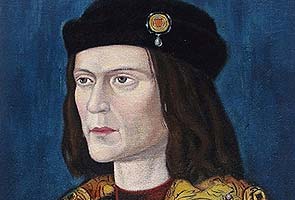
More than five centuries after the medieval king was killed in battle, academics were due Monday to reveal the identity of a skeleton unearthed in September at a car park in the central English city of Leicester.
The skeleton bears striking similarities to descriptions of Richard, who ruled England from 1483 until his death at the Battle of Bosworth in 1485 at age 32. (Richard III's reign)
The image released by the University of Leicester showed a well-preserved skull with most of its teeth still intact.
"The skull was in good condition, although fragile, and was able to give us detailed information about this individual," said Jo Appleby, who led the exhumation.
"In order to determine whether this individual is Richard III we have built up a biological profile of its characteristics. We have also carefully examined the skeleton for traces of a violent death."
But the university stopped short of revealing whether the skull was Richard's ahead of its press conference at 1000 GMT on Monday.
Scientists have been using the DNA of distant relative of Richard's to try to confirm the skeleton's identity.
They took DNA samples from 55-year-old Michael Ibsen, a Canadian-born carpenter who lives in London, and have been comparing them with samples from the skeleton.
Ibsen is a 17th-generation nephew of the king, who was immortalised as the hunchbacked villain of Shakespeare's "Richard III".
Richard is thought to have been buried at the Franciscan friary of Grey Friars in Leicester, but the church was demolished in the 1530s and its location had been lost until now.
The skeleton was unearthed in what is thought to have been the choir of the church, which was also uncovered during a three-week archaeological dig at the car park.
No comments:
Post a Comment